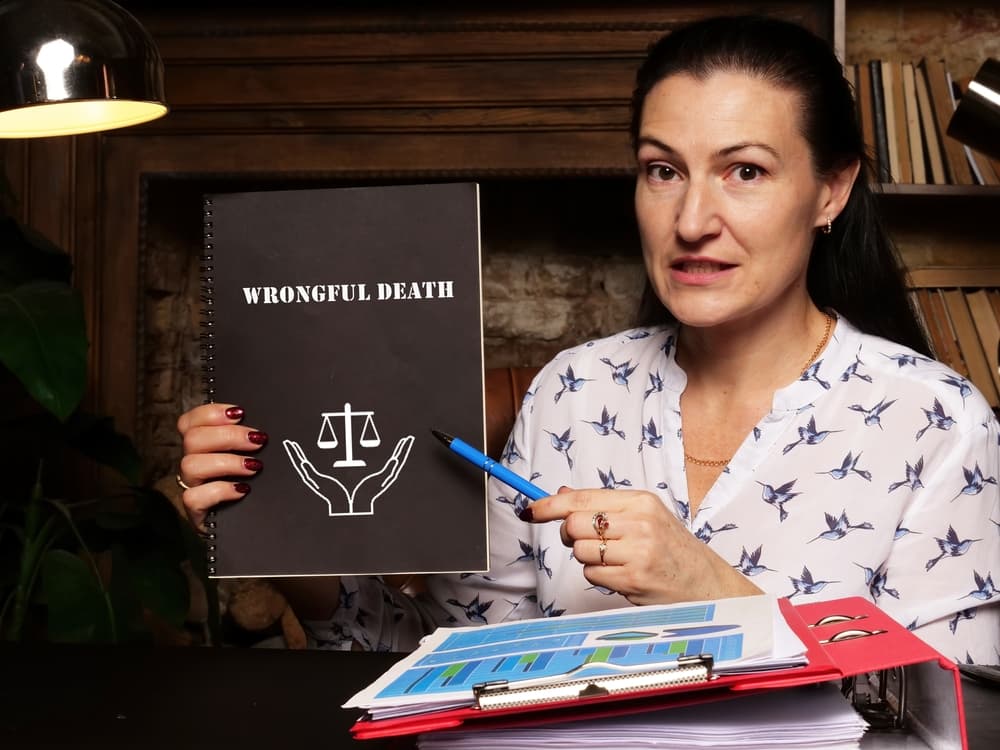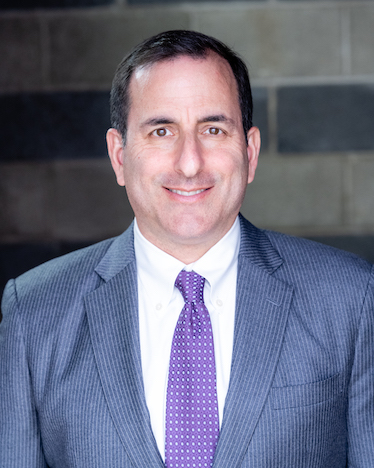A wrongful death is a premature death that results from another person or entity's negligent, reckless, intentional, or otherwise wrongful act. As part of a wrongful death insurance claim or lawsuit, certain surviving family members can pursue monetary damages stemming from the loss of their loved one, including loss of future income, companionship, comfort, and guidance. They may also pursue economic compensation for related funeral and burial expenses and medical bills.
If you recently lost a loved one due to someone else's wrongful act, a knowledgeable wrongful death attorney in your area can help. Your lawyer can determine your legal options and file the appropriate claim or lawsuit in pursuit of the compensation you need to obtain justice and closure for your loss.
Types of Occurrences that May Lead to Wrongful Death
Wrongful death claims arise when a person loses their life due to the negligence or wrongful actions of another party. In personal injury law, various circumstances can give rise to such claims. One common scenario is fatal accidents, encompassing motor vehicle collisions, workplace incidents, or slip and fall accidents. In these cases, the responsible party may ultimately be accountable for their actions, leading to a wrongful death claim or lawsuit.
Intentional acts resulting in death form another category of wrongful death claims. Criminal actions such as assault or murder can lead to civil lawsuits seeking compensation for the loss of life. In these cases, the burden of proof may differ from criminal proceedings, allowing for a separate legal avenue to pursue justice.
Additionally, premises liability situations can trigger wrongful death claims. Property owners owe a duty of care to visitors, and if their negligence leads to a fatal accident, legal action may follow. This may involve incidents like inadequate security measures resulting in a deadly assault or unsafe conditions causing a fatal fall.
In cases of nursing home neglect or abuse, where the elderly or vulnerable residents suffer fatal consequences due to inadequate care, surviving family members may seek legal remedies. Establishing negligence or misconduct on the part of the nursing home staff is crucial in these situations.
Ultimately, a wrongful death claim hinges on establishing that the at-fault party’s actions or negligence directly caused the death in question. Whether rooted in accidents, malpractice, defective products, intentional acts, premises liability, or elder abuse, these cases seek to compensate the surviving family members while holding the responsible parties accountable in a court of law.
Who Can File a Wrongful Death Claim or Lawsuit?

In wrongful death cases, the ability to file a claim or lawsuit is typically restricted to certain individuals with a direct relationship to the deceased. Depending upon the jurisdiction, immediate family members, such as spouses and children, often have the primary right to pursue legal action. These individuals carry the burden of demonstrating the effect of the loss on their lives and the financial and emotional hardships resulting from their loved one’s untimely death.
Surviving spouses typically have the foremost right to file a wrongful death claim. They can seek compensation for both the economic losses, such as the deceased's financial contributions to the household, and the non-economic losses, encompassing the emotional toll of losing a life partner.
Children of the deceased, whether minors or adults, may also have standing to file a wrongful death lawsuit. Their claims may involve the loss of parental guidance, support, and the emotional bond with the deceased. The court considers the age of the children and the potential effect on their lives when determining compensation.
In the absence of a surviving spouse or children, the right to file a wrongful death claim may extend to other dependents. These dependents may include parents who were financially dependent upon the deceased or individuals who can demonstrate a significant degree of dependency on the deceased's support.
In some cases, the personal representative of the deceased's estate can file a wrongful death claim on behalf of the estate and the surviving family members. This representative acts on behalf of the deceased and the beneficiaries, ensuring that any awarded damages benefit the estate and the individuals entitled to compensation.
Understanding who can file a wrongful death claim is essential, as it sets the framework for seeking legal redress. It ensures that those directly affected by the loss have the opportunity to pursue justice and obtain compensation for the various effects resulting from the wrongful death of a loved one.
Legal Elements of a Wrongful Death Claim
A wrongful death case involves specific legal elements that a claimant must establish for a successful case. The primary component is establishing liability, which requires demonstrating that the death resulted from the negligence, misconduct, or wrongful act of another party. The claimant (or plaintiff) must clearly show a direct connection between the at-fault party’s (or defendant's) actions and the fatal consequences.
Proving causation is also necessary in a wrongful death claim or lawsuit. Here, the plaintiff must establish that the defendant's actions were a substantial factor in causing the death. This requires presenting evidence directly linking the defendant's conduct to the fatal outcome, ruling out alternative causes.
Damages are another critical element in a wrongful death case. Plaintiffs must demonstrate the measurable harm suffered because of the death, both economic and non-economic. Economic damages may include financial losses like medical expenses, funeral costs, and the deceased's lost earnings. Non-economic damages encompass intangible losses such as emotional pain, suffering, and loss of guidance and companionship.
In wrongful death cases, plaintiffs must also demonstrate legal standing. Standing refers to their right to file a particular cause of action in court. Typically, immediate family members, like surviving spouses and children, have the primary right to bring a claim. The plaintiff must establish their relationship with the deceased and demonstrate the effect of the loss on their lives.
Timeliness is also a vital factor. Wrongful death claims are subject to statutes of limitations, imposing deadlines for filing legal actions. Failing to meet these deadlines can result in losing the right to pursue a claim. The plaintiff must initiate the legal process promptly after the death to comply with these time constraints.
Moreover, the plaintiff must adhere to legal procedures and requirements. This involves filing the necessary documents, adhering to court rules, and presenting evidence in a manner that adheres to the applicable legal standards.
Successfully navigating the legal elements of a wrongful death claim requires a thorough understanding of the applicable laws, attention to detail, and the ability to construct a compelling case. By meticulously establishing liability, proving causation, quantifying damages, demonstrating standing, adhering to timelines, and following proper legal procedures, the plaintiff can build a strong foundation for a successful wrongful death claim.
Types of Compensation for Wrongful Death
In wrongful death claims, monetary damages serve as a means to compensate surviving family members for the tangible losses they have incurred due to the wrongful death of a loved one. There are different categories of damages, each addressing different aspects of the effect on survivors' lives.
Economic damages form a significant component of a wrongful death claim or lawsuit. These damages aim to address the financial losses that surviving family members suffered. Medical expenses related to the deceased's final injury or illness, funeral and burial costs, and the loss of the deceased's future earnings are all considered economic damages. The court assesses these losses objectively, relying on evidence to determine the value of the economic effect on the family.
Non-economic damages, on the other hand, pertain to intangible losses that are challenging to quantify but are equally important in wrongful death claims. These damages encompass the emotional pain, suffering, and loss of companionship that surviving family members experience. Courts recognize the profound effect of the death on the survivors' lives and seek to provide compensation for these subjective and often immeasurable losses.
Punitive damages may also be available in certain wrongful death cases. Unlike economic and non-economic damages that aim to compensate the survivors, punitive damages punish the responsible party for their egregious conduct and deter others from engaging in similar behavior. Courts may grant punitive damages when the defendant's actions are deemed particularly reckless, malicious, or grossly negligent.
Survival damages represent another category within a wrongful death claim, focusing on the damages the deceased suffered before their death. This may include medical expenses incurred during the treatment of the fatal injury, the deceased's pain and suffering, and any other losses directly related to the period between the injury and death.
Understanding these distinct types of damages is crucial for claimants in a wrongful death case. Effectively presenting evidence and arguments related to economic, non-economic, and survival damages strengthens the claimant's position in seeking fair compensation. By considering the full spectrum of tangible and intangible losses, wrongful death claimants can address the total impact of their loved one's death and pursue a comprehensive and just financial recovery.
Fortunately, you never have to handle this alone. A wrongful death lawyer will be ready to identify and calculate the value of your losses for you.
Filing Insurance Claims for Wrongful Death
In the aftermath of a fatal accident, you may seek compensation through various insurance policies. For instance, in the case of a fatal car crash, you might file a claim against the at-fault driver's auto insurance. Similarly, if the incident occurred on someone else's property, their homeowner's insurance or liability insurance may cover the damages. However, handling insurance claims can be overwhelming, especially during such a challenging time, and insurance companies do not make it easy.
This is where having an experienced wrongful death attorney can make a huge difference. A lawyer handling wrongful death cases can take over all insurance communications and negotiations on your behalf. They will work diligently to ensure that you receive the compensation you deserve. Insurance companies are often focused on minimizing their own liability and may attempt to undervalue or deny your claim. Having a lawyer by your side can level the playing field and protect your rights.
An attorney will thoroughly investigate the accident, gather evidence, and build a strong case to support your insurance claim. They will communicate with the insurance company, ensuring that you do not inadvertently say or do anything that could jeopardize your claim. Additionally, they can help you understand your rights and options, guiding you through the legal process with compassion and skill.
Losing a loved one to wrongful death is an immense tragedy, but you do not have to face the financial burden or claim process alone. By consulting with an attorney, you can focus on grieving and healing while they fight for your rights to insurance companies.
Filing Wrongful Death Lawsuits When Insurance Companies Do Not Offer a Fair Settlement

Unfortunately, insurance companies often try to settle wrongful death claims quickly and for as little as possible. They may downplay the extent of your loss, undermine your grief, or even deny your claim entirely. When faced with an unfair and unjust settlement offer from an insurance company, you have the right to challenge their decision and pursue legal action in civil court.
Your attorney will advise you on the next steps, which may include filing a lawsuit. The litigation process is complicated, but your attorney will handle every step. Further, filing a lawsuit does not mean your case will go to trial. In fact, most cases still settle during pre-trial litigation.
If you find yourself in a situation where an insurance company is not offering a fair settlement for the wrongful death of your loved one, a qualified wrongful death attorney is there for you. They will fight for your rights, ensuring that you receive the justice and compensation your family deserves.
Call a Wrongful Death Attorney Right Away
If you recently lost a loved one due to someone else’s wrongful act, you need to speak with an experienced personal injury attorney in your area as soon as possible. Your attorney can swiftly investigate the circumstances surrounding the fatal incident and take the necessary legal steps to pursue the damages you and your family members deserve.



